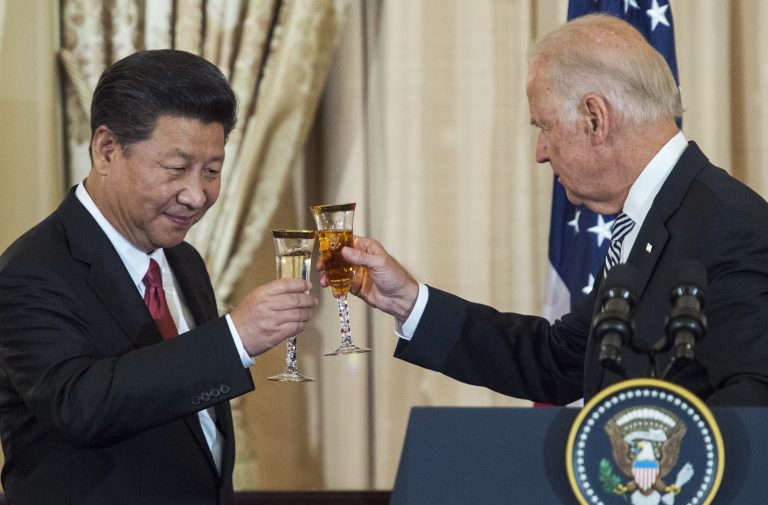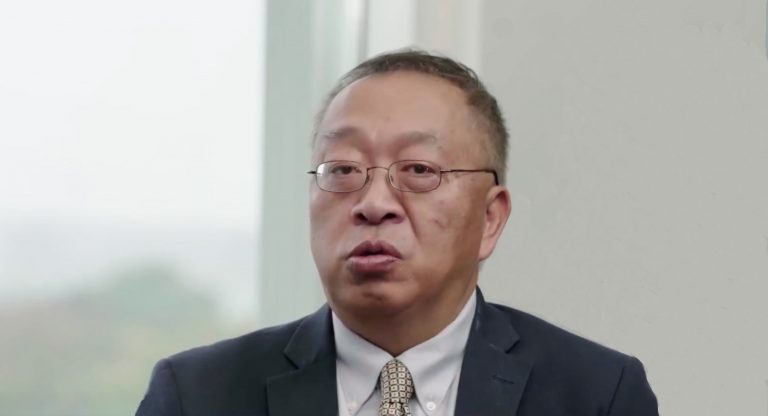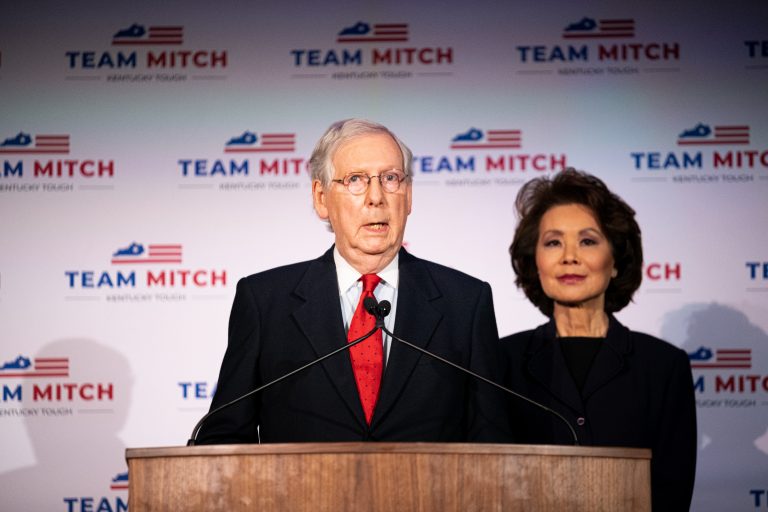The Chinese leadership’s delayed congratulations to Joe Biden and his running mate may have arisen from confusion — and perhaps self-inflicted misinformation — about the U.S. political process, according to China watchers.
On Nov. 25, Chinese leader Xi Jinping offered congratulations to Joe Biden “on election as U.S. president,” according to state mouthpiece Xinhua. The message came over a fortnight after the Democratic candidate and former vice president announced victory in the Nov. 3 election. People’s Republic of China (PRC) vice president Wang Qishan sent similar regards to Biden’s running mate, Kamala Harris.
The lengthy delay is uncharacteristic of Beijing, which in the past has congratulated the winners of American presidential elections promptly. But this year, the PRC first offered congratulations to Biden and Harris on Nov. 13, without mentioning the terms “president-elect” or “vice president-elect” — days after the pair gave acceptance speeches on Nov. 7.
Further, Chinese foreign ministry spokesman Wang Wenbin emphasized that “we understand the results of the U.S. election will be determined according to U.S. laws and procedures.” Wang had made a similar statement on Nov. 9.
Delayed response
The Chinese government’s sluggishness in issuing a congratulatory message contrasts it with the vast majority of countries and media outlets, which were quick to congratulate Biden on beating Trump.
While ballot counts show Biden in the lead, official results have yet to be certified in key U.S. swing states. Litigation by the Trump campaign and private attorneys alleges that massive systematic fraud in the election flipped the outcome in favor of the Democrats.

Success
You are now signed up for our newsletter
Success
Check your email to complete sign up
China watchers say that Beijing only appeared confident in calling the race for Biden after the Trump administration authorized Emily Murphy, head of the General Services Administration (GSA), to begin the handover process to whom she determined was the “apparent president-elect.”
The GSA is tasked with handling political transition between administrations, and authorizes the funds needed to begin bringing a newly elected president and his aides into office.
Tang Jingyuan, a China affairs analyst residing in the U.S., told The Epoch Times previously that the PRC favored a Biden presidency. However, “Xi Jinping doesn’t want to anger President Trump, who has the power to launch tougher trade policies and so on in the following weeks.”
He also said that Beijing may have been preparing for the possibility that Trump could still secure re-election through the U.S. legal system.
The Trump administration has taken the hardest stance on China of any U.S. administration in recent decades. Washington has placed punitive tariffs on the PRC in retaliation for its illicit business practices, stemmed Chinese industrial and military espionage, and condemned the Chinese Communist Party (CCP) as a totalitarian “Marxist-Leninist Party focused on struggle and international domination.”
How Beijing calling the election could backfire
Larry Ong, an analyst at China political risk consultancy SinoInsider, said that Chinese leaders were likely led to believe that the GSA’s announcement, plus statements made by U.S. state governors, meant that Biden’s presidency was a foregone conclusion.
“The CCP is likely working on the assumption that the states’ certification process is a done deal when governors declare it is,” Ong said in a Nov. 26 email. “Add to this the GSA’s authorizing funds for the Biden transition, and you have the CCP making the assumption that they are respecting ‘U.S. laws and procedures’ with regard to the election.”
Ong also said that factional struggle between Xi and his rivals in the communist regime could prevent the delivery of reliable and accurate information to the CCP headquarters of Zhongnanhai.
“They may not understand the finer details of the U.S. electoral process, and Xi also may have received faulty reports from CCP intelligence agencies, which he has yet to fully consolidate authority over,” Ong said.
A Nov. 26 analysis by SinoInsider states that Xi and the CCP regime are hopeful for a Biden administration, as the latter is poised to “return to the pro-China ‘engagement’ strategy, though it may superficially appear as ‘competition.’”
“This is clear from Joe Biden’s unwillingness to publicly name China as the number one threat to the U.S. and his key cabinet appointees,” the analysis reads, noting that Xi and the PRC currently face a “perfect storm” of economic, social, and international crises that could doom the regime.
For Xi, being mistaken in calling the U.S. election for Biden would raise his political risks.
“A Trump presidency means escalated Sino-U.S. confrontation, which creates political openings for Xi’s rivals to exploit,” Ong said.
“A continued Trump presidency is Communist China’s worst nightmare,” SinoInsider’s analysis piece reads. “There is no question that President Trump would go very hard on China if he wins a second term.”













